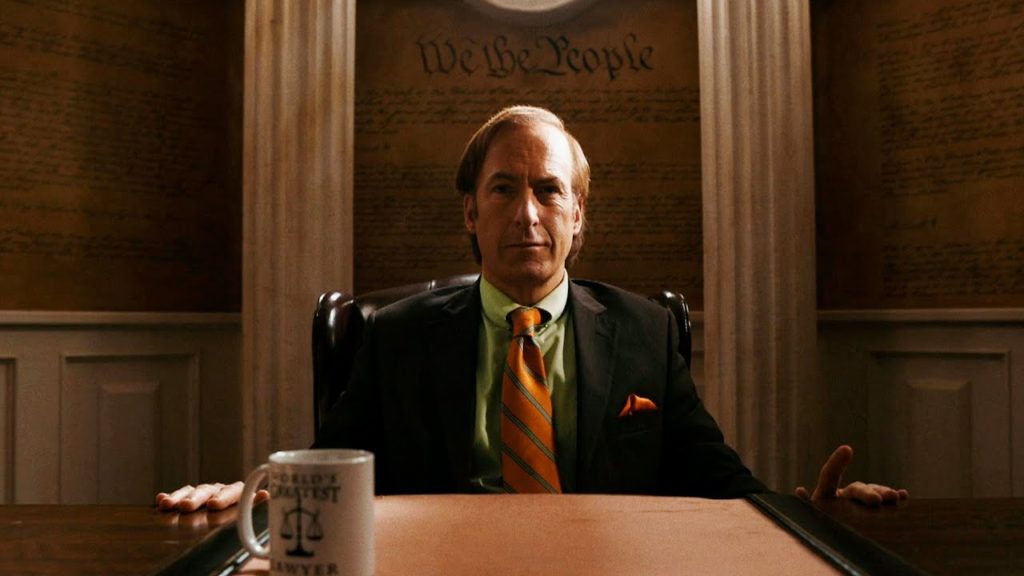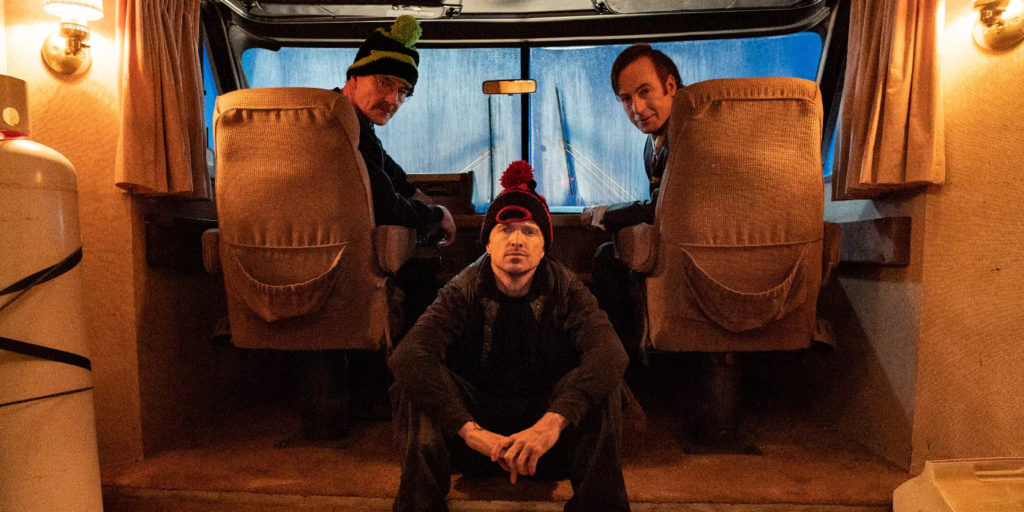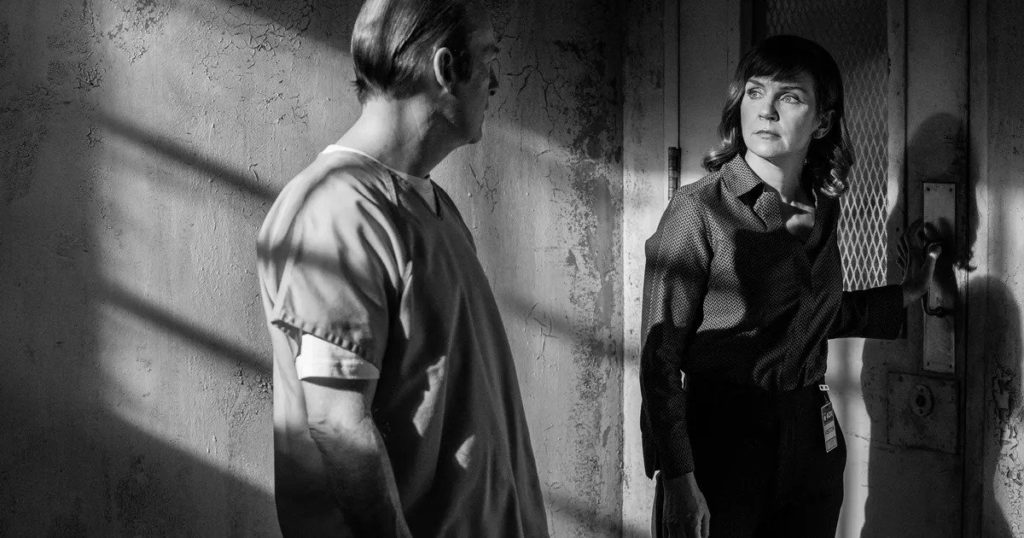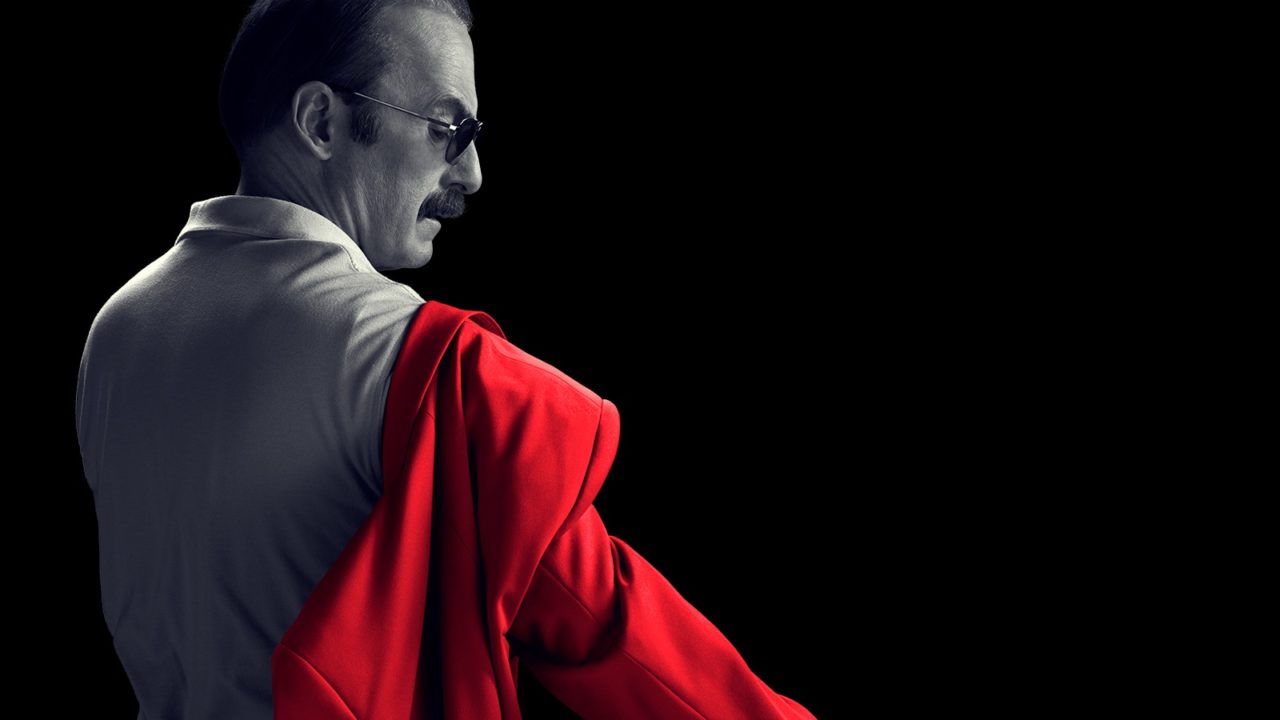Being a prequel, a sequel, an inbetweenquel, for years we’ve been theorising just how, and when, Better Call Saul will come to an end, especially when a large bulk of Jimmy/Saul/Gene’s story occurs within another show entirely. Then it finally ended. Then, a week later, it ended again. Then again. And again. And, finally, for reals this time, again. From the sixth and final season’s ninth episode to its thirteenth, each instalment felt like a potential series finale, one I would be satisfied to see as the show’s last. Each episode the perfect ending… until the next ending.

The episode ‘Fun and Games’ began this trend of apparent narrative closure; it’s the show’s first series finale. The episode may actually be my favourite of the entire run, offering the final piece of the puzzle for why Jimmy retreats into being Saul Goodman, the character we thought we knew being nothing but a loud brash coping mechanism. He ends where Breaking Bad begins, the character work threaded perfectly, and Kim leaving Jimmy, able to recognise what he cannot, could have been a satisfying ending for her character, a choice which defines who each of them are. Fun and Games is also Mike’s best episode of the season, which otherwise left him underserved. He tries to follow a code but, in reaching out to Nacho’s father, understands he’s a criminal just like the rest of them. Even Gus gets one of his best moments in the dual-series story, unable to give himself a moment of peace. Fun and Games is the finale of what the show had been for six seasons, a Breaking Bad prequel manoeuvring all the necessary pieces into place, before the final four episodes begin an epilogue story.
If you didn’t know the final season was given an extended thirteen-episode run, you could easily be fooled into thinking the tenth episode – Nippy – was the series finale, one defined by solemnity. Gene, pushed against a wall by a different – but better! – Jeff, has to let a little bit of Saul and Slippin’ Jimmy back into his life to save himself. It could lead to a grand resurgence, but it doesn’t. The con itself is good fun and the most energy the Gene story has had yet with a fun appearance by Jerry/Larry/Garry/Terry from Parks and Rec, the only man with more names than Jimmy/Saul/Gene. Yet instead of Gene becoming this garish man again, the episode gives us a quiet, sombre ending of putting the loud shirt back on the rail and walking away, which I would have happily taken as the final image of the show. After a fun last con, it’s a sad ending. Jimmy decides her can’t be that person and stays in his depressing Gene state, a more confining prison than the one he ends up in. A dark fitting ending for a man who feels he deserves one, and, the truth is, he does.

The Better Call Saul episode ‘Breaking Bad’, a companion piece to the Breaking Bad episode ‘Better Call Saul’, could have been a fitting full circle ending, the story closing where it began. The episode offers an end to both points of the timeline, in fact the same end, showing that Jimmy/Saul hasn’t grown and is still making the same mistakes. A wonderful flashback with Mike makes it fundamentally clear that Saul is complicit in his deal with Walt and everything that comes of it, that his own actions are to blame for his downfall, his arrogance. He enabled Walt when warned against it, leading to so many deaths and destroyed lives. Gene lives with this internal guilt and pain yet, ultimately, if this were the last episode and we didn’t get the growth of the true finale, he repeats his mistake. As he once walked into Walt’s school, he enters another man with cancer’s home when he could have just left it alone. The same action causes his downfall twice. It’s an ending that says Jimmy can’t change; the self-destructive Saul is now dominant. With the final image of him entering that house, we know he is walking to his end and his life will now fall apart again. We don’t even need to see it. I like that as an ending, more metaphorical than literal.
At the end of Waterworks, an elderly woman becomes Jimmy/Saul/Gene’s downfall and it is perfect cosmic justice and would be immensely satisfying… if it wasn’t so scary. After trying to bury himself in his cons after a disastrous phone call with Kim, a rebirthed Saul contemplates murdering an innocent old lady, before he ultimately runs away as Gene. It’s perhaps the darkest moment for the character, the depths he’s gone to shocking even him, and in a series charting Jimmy’s downward projection perhaps it’s a fitting end. The morally ambiguous male protagonist that prestige television is dominated by becomes even more so in his last act, and what a bold move it would be to leave Jimmy at a place where all sympathy for him has dissolved and the audience want him to get caught. It would be open-ended in terms of plot, what actually happens to Jimmy after he is discovered, but as an ending for the character, driven to a new low, it would be perfectly epitomic. Especially when paired to what we see of Kim in this episode, in a similar exile to Gene, but she’s willing to accept the consequences of her actions. It’s a sad ending, her crying, alone, on the bus, but what a perfect encapsulation of the two characters: Gene runs while Kim hands herself in.

The show’s actual finale, Saul Gone, is a mostly calm, almost inevitable ending. Sometimes the most obvious and quiet way to end a show is the most satisfying, with no need for twists. With remembrances of three dead colleagues/family members splitting the narrative, the episode almost takes on the form of A Christmas Carol as it explores the balance between regret and acceptance of past actions, the balance between Jimmy and Saul, and a tonal balancing act between sad and hopeful. It’s a finale for all of Jimmy’s personas, reversing back down his life, Gene then Saul then Jimmy, becoming each again but accepting his actions as the previous. Gene is a coward, Saul is at his most detestable, and Jimmy regrets walking down that ‘bad choice road’ that led to Lalo’s revenge, refusing to lie in court to Marie like he once did to Fred Whalen’s family. I think it’s debatable where the line is drawn, between personas and accepting consequences, but that’s where it is to me.
Jimmy may have begun as a nice guy but he deserved that longer sentence and he knew it, ultimately accepting he can’t get rid of Saul, going by that moniker in prison. He is Jimmy McGill and he is Saul Goodman. And the heart of the show, Jimmy and Kim, can share a cigarette, some level of passion and understanding between them, the only colour in the black-and-white world being the smouldering cigarette passed between them, even if they can’t be together. Hitting the melancholic middle road emotionally threatens to be disappointing and lacklustre but it felt right, even if it is almost too clean for my ambiguous tastes.
Better Call Saul was a quieter show than Breaking Bad. It was never going to have the same hype and fervour, never take the world by storm like its predecessor. Yet while Better Call Saul doesn’t hit the same intense heights – Breaking Bad still has the greatest moments and scenes – it is ultimately a more accomplished drama. It is far more complex in its characterisation and that’s what shined through in its final episodes. The characters are deeper and richer and less in need for a definitive end; death was not a satisfying out for any of the major characters. The show had no simplistic “Mr. Chips to Scarface” character arc elevator pitch, it was much more complex, and all the better for it.
What are your thoughts on Better Call Saul’s multiple finales? Are you as confused about whether to call him Saul or Jimmy or Gene as me? Let me know in the comments and be sure to geek out with me about TV, movies and video-games on Twitter @kylebrrtt.








